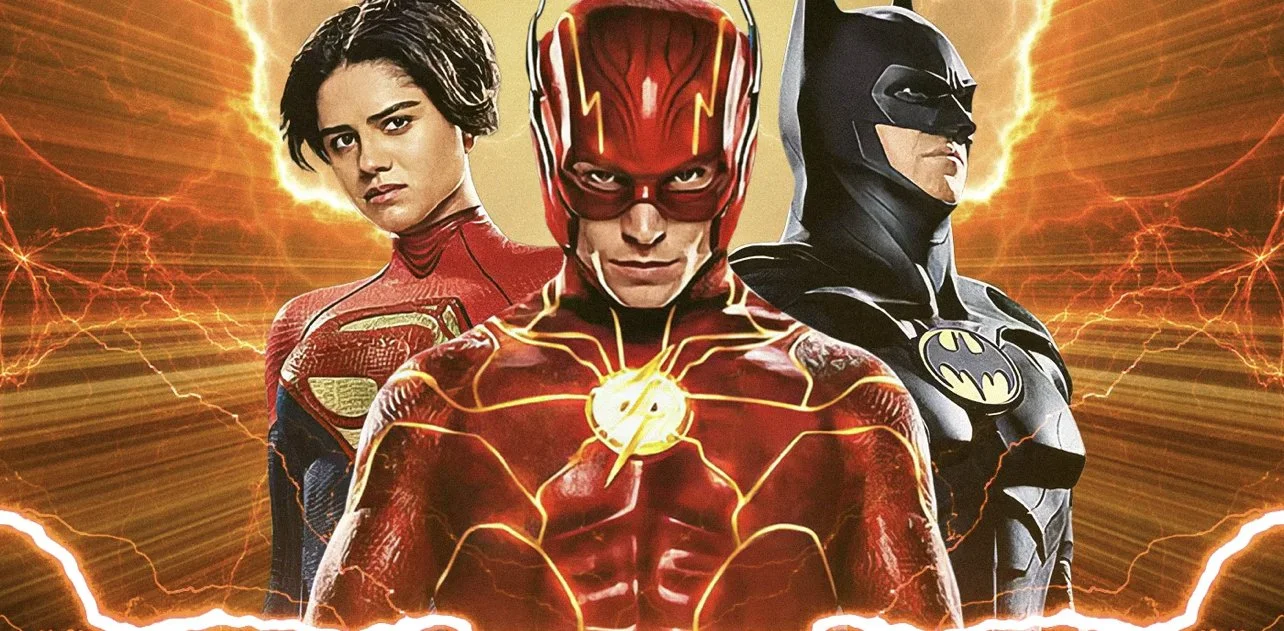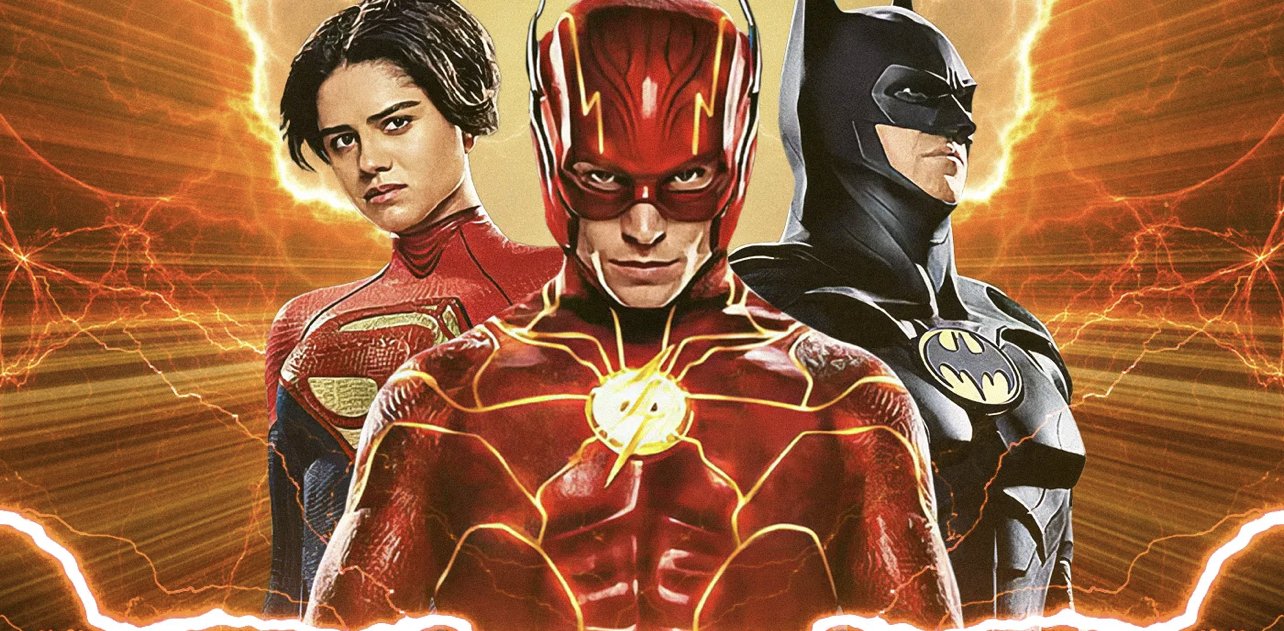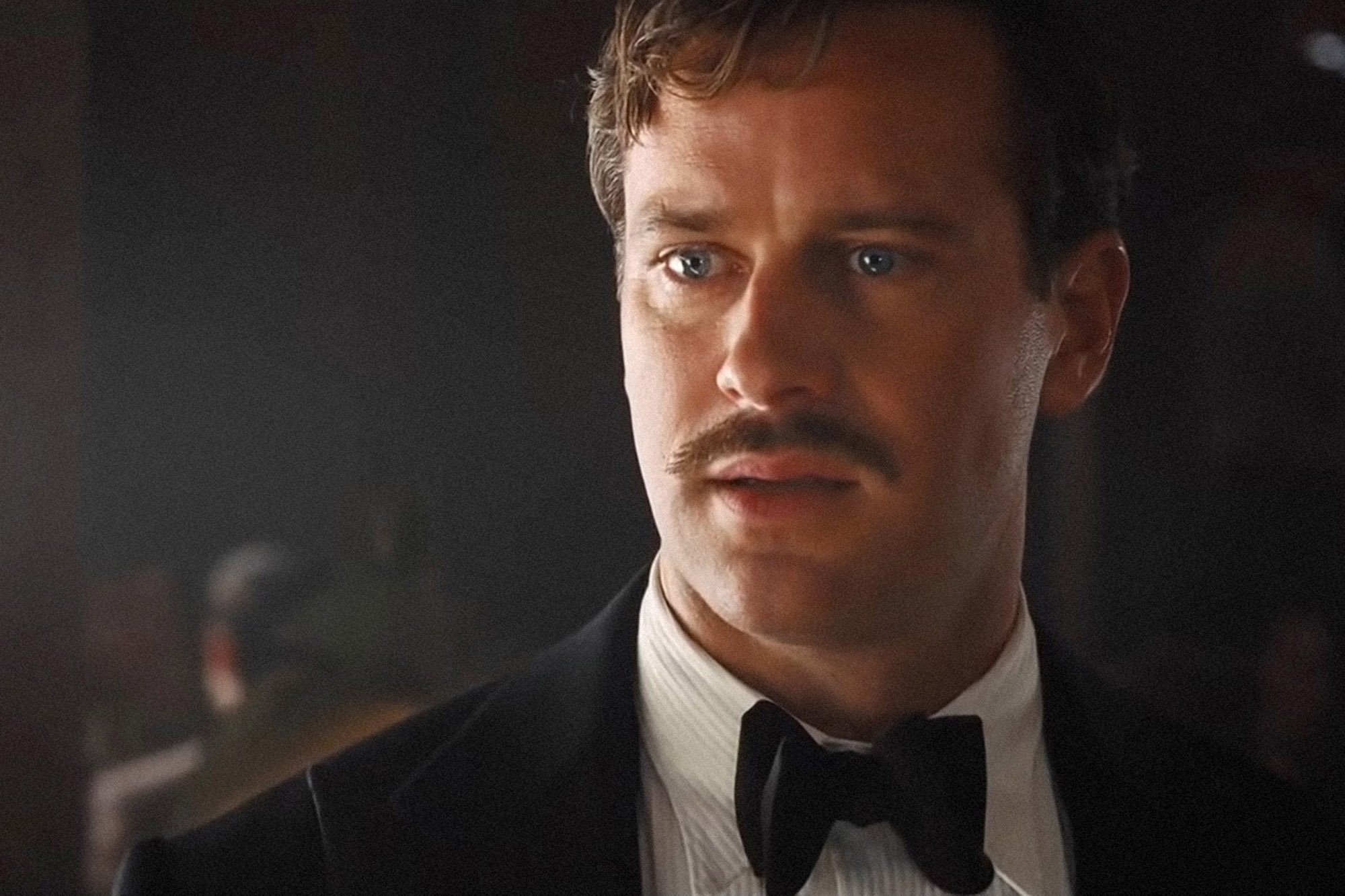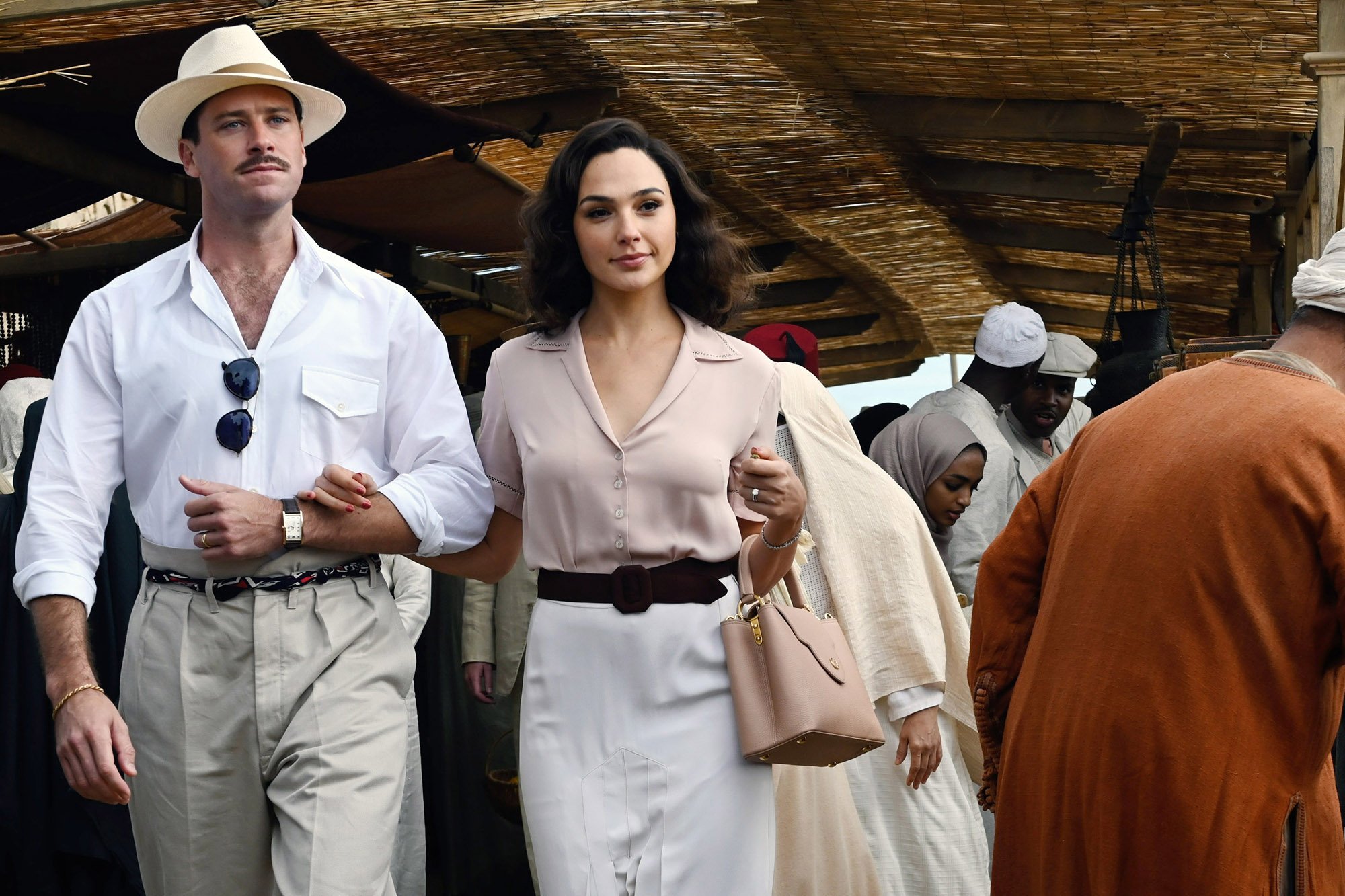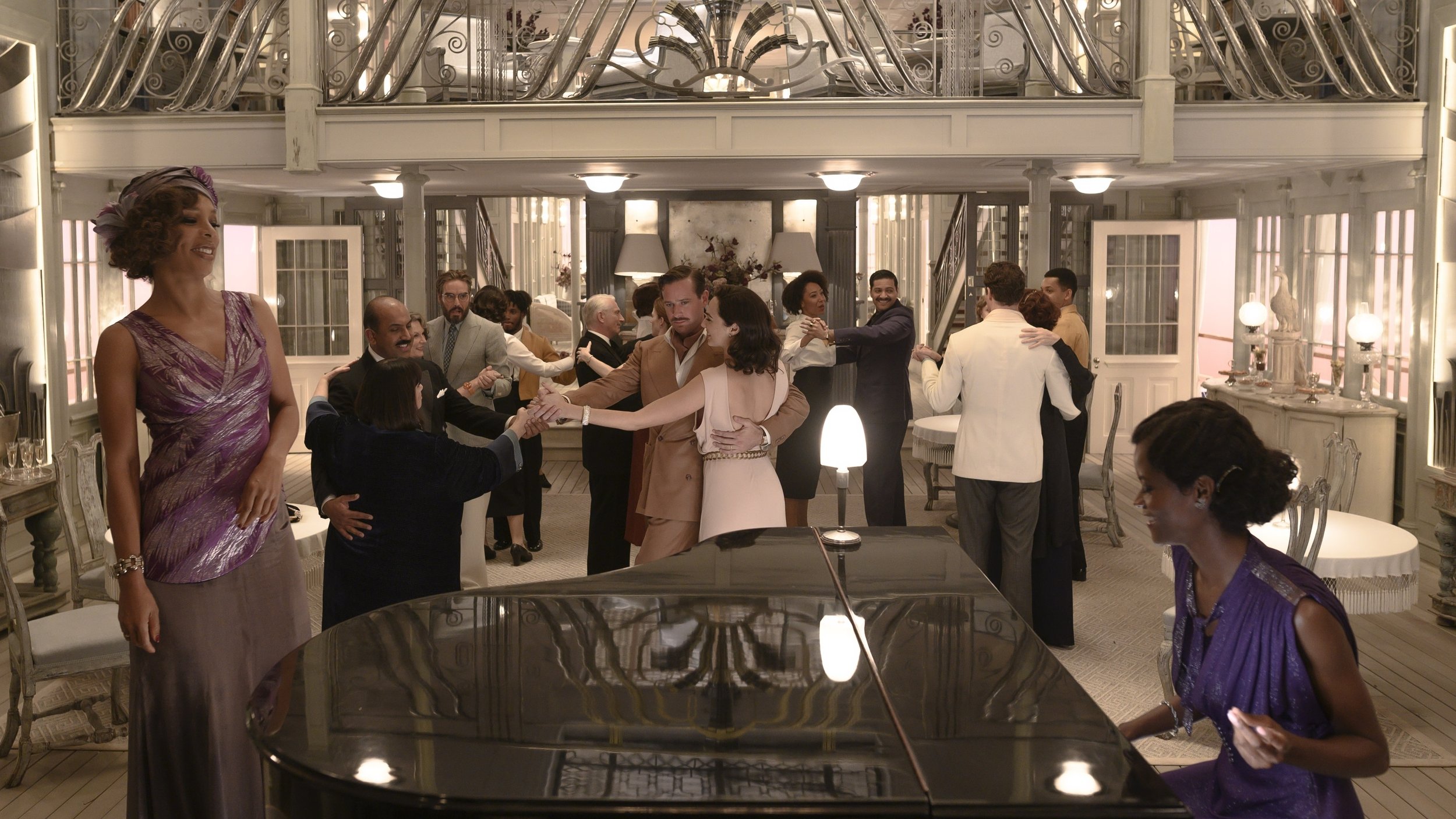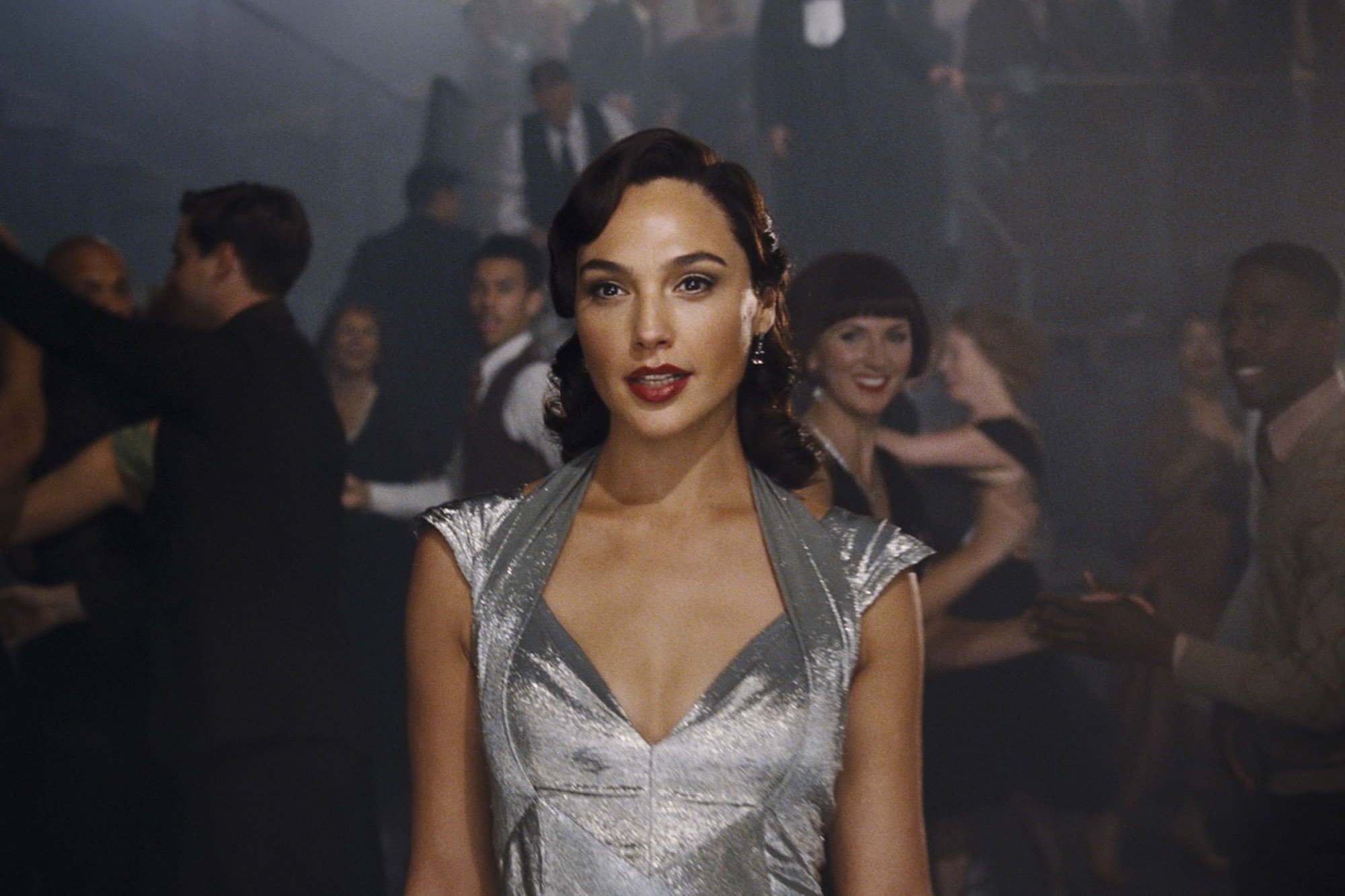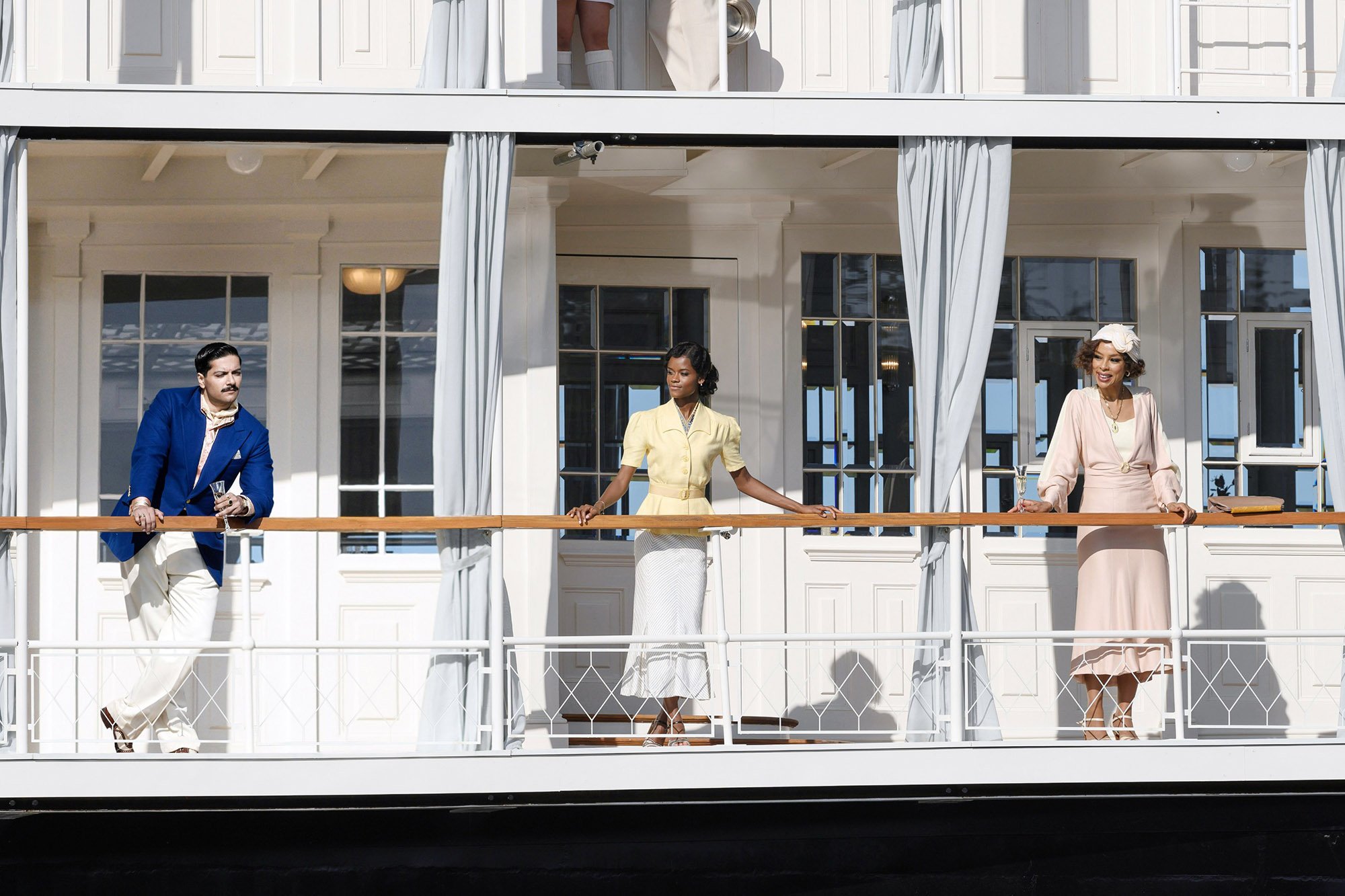Barry Good: Ezra Miller is the Secret Weapon (one of them) that sets The Flash Apart from the Confusing Trend of Multiverse Superhero Franchises
Review by Arnold Wayne Jones
Courtesy of Warner Bros.
The advent of “Cinematic Universes” is a blessing (mostly to the studios’ bottom lines) and a curse (mostly to folks who just like the fun escapism of comic books). When those CUs started delving into the concept of multiverses… well, it just confused me more. I confess that, when I saw Spider-Man: No Way Home, that was the first indication I had that the Tom Holland, Tobey Maguire and Andrew Garfield Spideys all existed in parallel dimensions. This was news to me; I always assumed the casting changes were occasioned by studio whims and creative choices, not living elsewhere in the timeline. Frankly, none of it makes much sense. Did the recasting Bruce Banner (Edward Norton to Mark Ruffalo) within the Marvel CU signal another universe… and if so, why was General Ross played by William Hurt in both the Norton and Ruffalo incarnations (a part soon to be played by Harrison Ford, occasioned by Hurt’s death). It’s the gymnastics associated with insisting on canon, while simultaneously allowing the reinvention of the franchise at will, that makes no sense. (I loathed No Way Home, and its companion film Dr. Strange and the Multiverse of Madness, for those and many more reasons.)
In my adulthood, live-action feature-film Batmen have included Michael Keaton, Val Kilmer, George Clooney, Christian Bale, Ben Affleck and Robert Pattinson – which of these are in the same world, if any? It simply isn’t worth the effort to figure it out.
Courtesy of Warner Bros.
The news, then, that the new Flash film would include time-travel initially set my teeth on edge. (Time travel always reminds me of the throwaway line in an episode of The Simpsons where guest voice Lucy Lawless says that anytime something in Xena didn’t make sense, “a wizard did it.” On the other hand, the animated series Rick & Morty is so crazy, it doesn't even try to maintain consistency; it’s brilliant.)
The Flash definitely has a lot of plot holes and related issues tied to its universe-hopping, but it’s also hugely entertaining in its own right. No other superhero film that plays so fast and loose with quantum mechanics is quite so satisfying as this.
The plot in its essence is: Barry Allen (Ezra Miller), who is secretly the super-speed hero known as The Flash, wants to help his dead get out of jail after being wrongfully accused of killing Barry’s mom. Barry figures out how to travel back in time in order to “correct” the injustice, but of course, timelines cannot be toyed with, and the repercussions are dire. (The original Star Trek series did basically the same thing in the class episode “City on the Edge of Forever.”) Barry meets his younger self and together they try to set things right – first finding Batman to enlist his help, then using Batman to track down Superman, who isn’t to be found.
Courtesy of Warner Bros.
One reason for the success, I suspect, is that The Flash makes only limited use of the current DC Extended Universe – there are references to Cyborg and Aquaman, but only Wonder Woman (Gal Gadot) and Batman (Ben Affleck) make meaningful appearances. That allows the film to more or less stand on its own without too much clutter and focus on the character of Barry Allen.
And the secret weapon of The Flash isn’t speed…. it’s Ezra Miller. Miller’s personal life – use of they/them pronouns, occasional identity as queer (and then not), acts of violence and inappropriate conduct, mental health crises – have been widely documented, but honestly, it is easy to look past them to appreciate the extraordinary work Miller is doing here. They do twice the lifting of any other actors, playing (for the majority of the film) two separate Barry Allens, each of whom Miller makes distinct and individual. You might even call it three performances, when you add his sexy, ripped heroic mien as The Flash. As Older Barry, Miller is quirky and uptight and stressed out; as Younger Barry, he’s annoying and goofy. You’re never confused about who is whom; it might be the best dual performance I’ve ever seen in a movie.
The plot, despite its complications of logic, is incredibly well-structured within its constraints, so I hesitate to give away much of it, except to say that they majority of scenes with “Bruce Wayne” inject a wondrous nostalgia and set up a contrast to the current DCEU that really serves its legacy.
It’s not only the performances, though: The special effects and storytelling are superior to most DC films in this franchise, and the action sequences are staged to be well-lit and visually coherent in a way that often isn’t the case. It really delivers what you want in a summer blockbuster. The Flash gives you a rush.
Film Review- Death on the Nile
by Arnold Wayne Jones
More than a century after the publication of her first novel, Agatha Christie remains the best selling novelist of all time. Think about that: The only authors who are more widely read are Shakespeare (a playwright!) and God (the Bible… though maybe that should be classified under fiction as well). That’s a lot of wide-ranging appeal. On the other hand, popularity doesn’t always translate into brilliant writing. Christie’s skill was plotting more than characterization. Those who populate her novels tend to be types – chatty cousins, blustery retired soldiers, Bohemian young women, moustachioed Lotharios. They serve her stories more than they live in our imaginations.
Courtesy of 20th Century Studios
Her more than 50 full-length books featured her most famous detective, Hercule Poirot, 33 times, and even he was something of a cipher. Fussy, stout, ageing, he exuded sexual repression channeling his puritanism into nosiness. And in a series of films starting in the 1970s, usually starring Peter Ustinov, his pinched emptiness became a delightful vessel for scenery chewing and the flamboyant “I suppose you’re all wondering why I’ve called you here” reveal. It’s fun.
So fun, in fact, that one of my favorite popcorn movies has always been 1978’s Death on the Nile, with its portmanteau of former superstars (Bette Davis! Angela Lansbury! David Niven!) – a tour of Old Hollywood glamour with a satisfying conclusion and few consequences.
Alas, our society has changed. Despite how depressingly epidemic remakes have become, old-school entertainments usually must gesture toward justifying themselves by adding a post-modern veneer. And so Kenneth Branagh’s long-delayed remake of Death on the Nile, just in theaters, begins not with a juicy teaser to set up what’s to come, but a black-and-white prologue set decades earlier, in the trenches of The Great War in Europe, when a young soldier named Hercule uses his little gray cells to best the enemy and plan a wise military attack that nonetheless has a dire result. Those scenes explain Poirot’s celibacy, his outrageous whiskers and perhaps his hesitancy to solve the crime at the center of the story. It’s not just popcorn fun anymore … it’s meaningful.
Courtesy of 20th Century Studios
Don’t get me wrong: some of the many delights on this tour of the Nile are its dazzling costumes, its breathtaking landscapes, its glittering atmosphere and parade of beautiful stars. And anyway, most of the character work is foisted on Branagh himself, who not only directs but play Poirot (as he did in his last Christie remake, 2017’s Murder on the Orient Express), so he’s up for the challenge and happy to instill a little po-mo gravitas on this frothy confection, letting the updates imbue it with more relevance. While the novel was written and set in a much less woke decade, the changes reflect a 21st century mindset. The original cast was a lily white as an albino eating a mayonnaise sandwich on Wonder Bread during a blizzard, so retrofitting, for instance, Salome Otterbourne not as a boozy romance novelist as a black world-weary jazz guitarist seems wise and organic, while interracial and same-sex romantic entanglements reflect an unspoken reality of the era.
Courtesy of 20th Century Studios
And the cast turns out to deliver performances beyond their remit. Sophie Okonedo, as the aforementioned Otterbourne, has none of the drunken bravada brilliantly rendered in the original by Angela Lansbury, but replaces it with a thoughtful cynicism and air of mystery and menace. Annette Bening, always one of the screen’s most watchable actresses, embraces her role as a devious matriarch. The legendary British comedy team of Dawn French and Jennifer Saunders reunite with an unexpected divergence from the source material that nonetheless makes perfect sense, and would have even in the 1930s.
Courtesy of 20th Century Studios
Death on the Nile has always boasted one of Christie’s most serpentine yet satisfying solutions, and one concern I had going in was whether the screenwriters would pay proper homage to the source material or muck it up just to be unexpected. Without revealing any spoilers, I can attest that many of the changes in character and plot keep you guessing without while still offering a nostalgia tour of the elements that have always made Christie’s bubblegum prose enjoyable.
Don’t mistake the stylistic updates as a pretentious rejection of the novel. This is still a drawing room murder mystery with all the ridiculous melodrama you’ve come to expect, but its careful tailoring or the saggy parts presses vintage glam into familiar clothes.
Courtesy of 20th Century Studios

